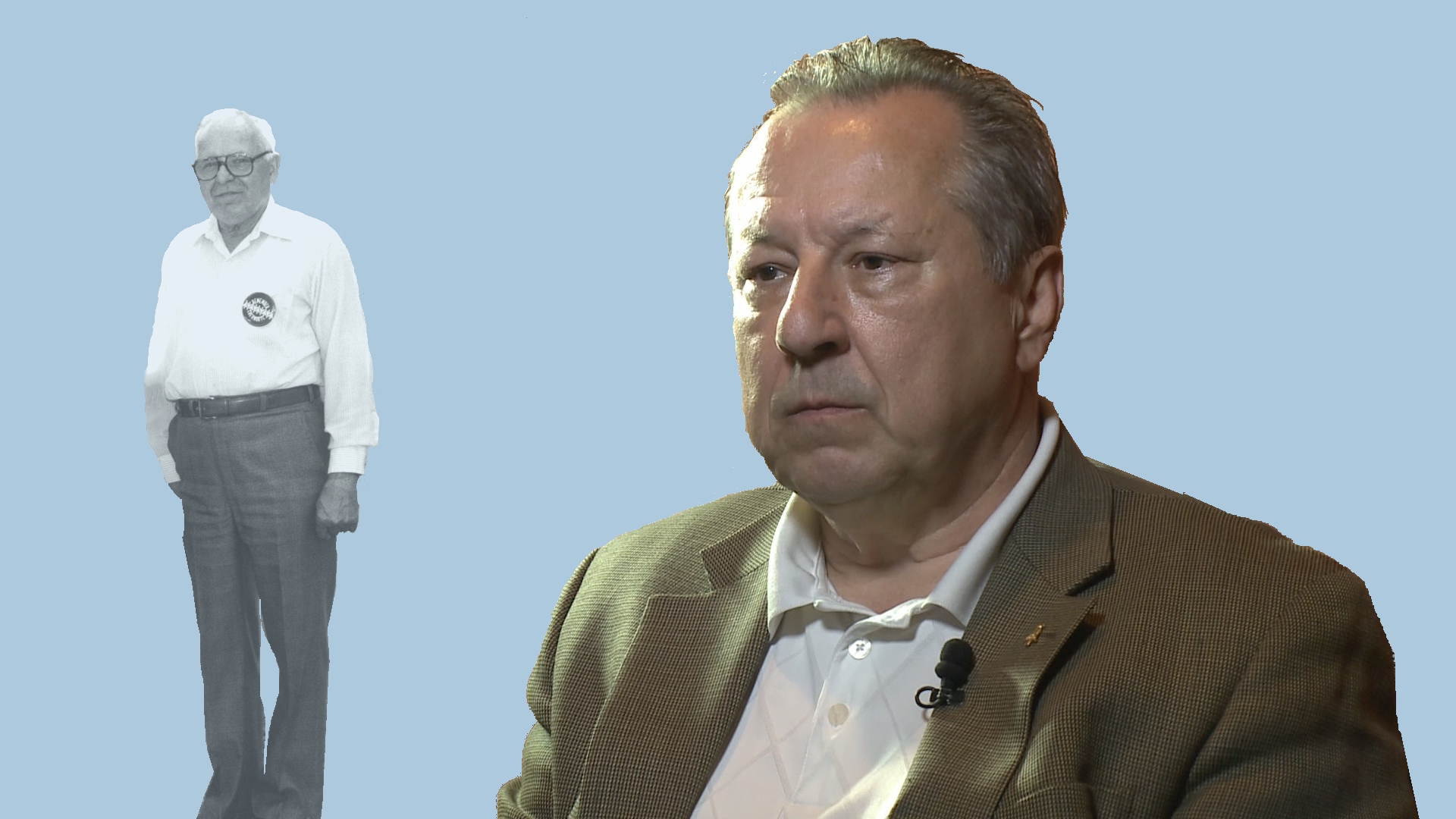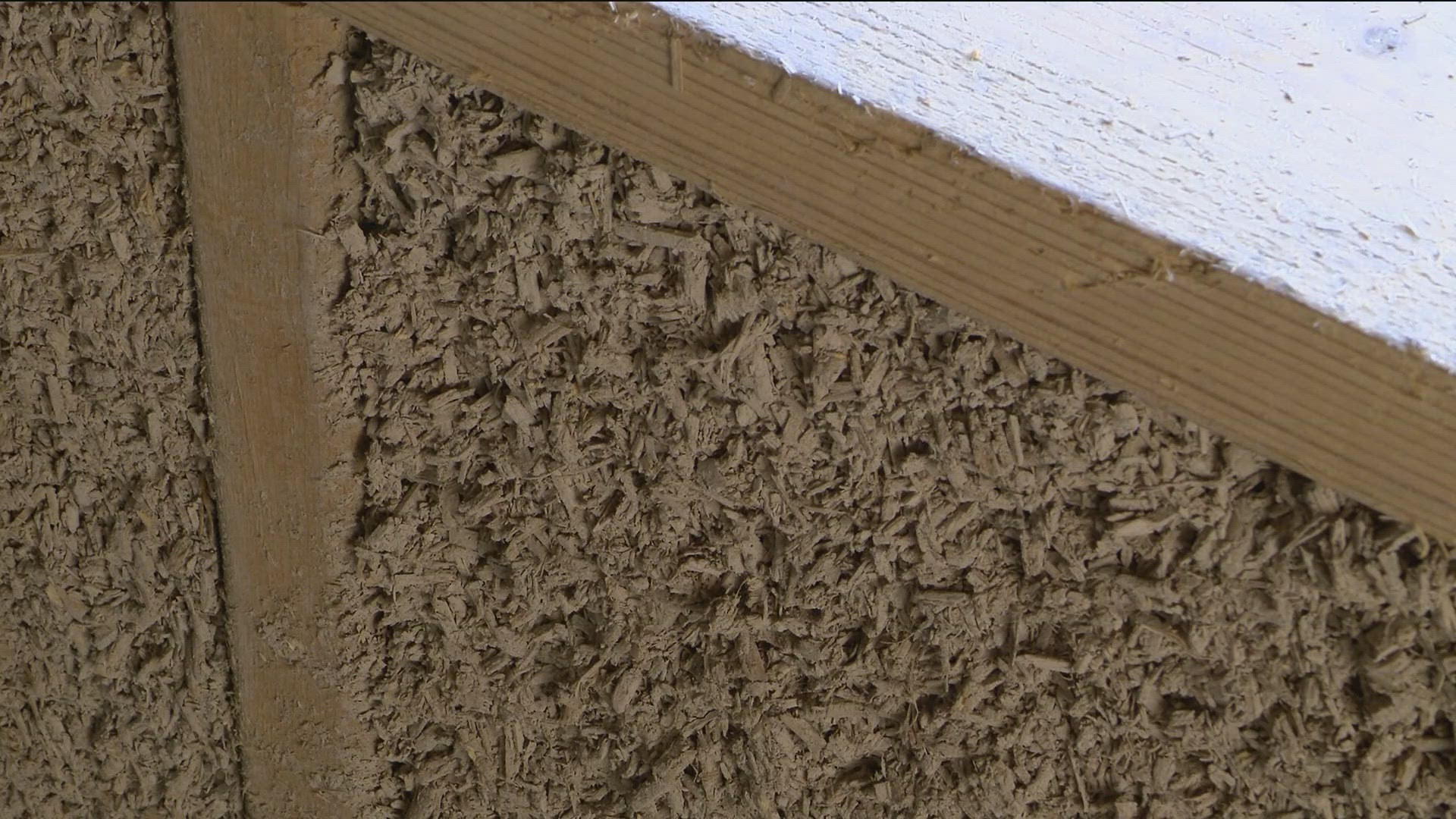MINNEAPOLIS -- It's been a year since Associated Press reporters came knocking at Michael Karkoc's door in Minneapolis to ask him about discrepancies in his 1949 visa application.
Karkoc ,a 95-year-old retired carpenter and proud Ukrainian immigrant, had no idea that day in May of 2013 that his life was about to be upended.
A few weeks later the AP named Karkoc as the commander of an SS-led Ukrainian commando group during World War II, and blamed that unit for a 1944 attack that claimed dozens of civilians lives in the village of Chlaniow, Poland. The worldwide wire service followed up with a report in November saying Karkoc himself may have ordered the attack.
"My father cannot understand how an innocent American, who endured, suffered and survived a carnage unknown in modern ages can be lied about, smeared, defamed," Andriy Karkos, one of six children raised by Michael Karkoc, told KARE in his first TV interview since the AP aired the claims.
"This is a slander, not only against my father, but against the Ukrainian people."
Karkos has spent the past year defending his father's name, and at the same time shielding him from the media onslaught that followed the AP report.
"My father was not a Nazi. My father was not in the SS. My father, and our family more specifically, are victims of German Nazi persecution," Karkos asserted. "He came to this country. He's been a loyal, law abiding, God fearing American citizen for 60 years!"
Last week the highest court in Germany ruled that prosecutors there have jurisdiction to prosecute Karkoc, even though the crimes happened on Polish soil and Karkoc was an ethnic Ukrainian.
The German Federal Court of Justice decided that Karkoc's role as a leader of the Ukrainian Legion of Self Defense made him, in effect, a "German office holder" and therefore fair game for prosecution.
"It is a travesty. The German government should be ashamed. German jurisprudence should be ashamed," Andriy Karkos said.
"There is no evidence that the Legion of Self Defense was led by the Germans, and there is no evidence my father was subservient to any German command."
At the same time, the family awaits a fair and impartial review of Karkoc's wartime experiences and expects the judicial system to apply higher standard of evidence than the media often does.
"Anything that moves forward a legitimate and bona fide investigation to clear my father, we're in favor of," Karkos explained.
He's especially appalled by the thumbnail sketches and labels from newspaper headlines and TV news tickers, which leave no room words such as "alleged."
Karkos also is disappointed that most reporting on the issue lacks any historical context of what Ukrainians endured at the hands of the Soviets and Germans before, during and after the war.
"My mother's brother was an orthodox priest. He was executed by the Germans. And 13 people were executed in my father's village, and my grandfather's farm was burned to the ground when the Germans found out the Legion of Self Defense was fighting against them in the village of Horodok."
The memoirs
Horodok is now part of western Ukraine, but it was part of Poland in 1939 when Germans invaded and occupied the country. Shortly afterwards the Soviets invaded Poland from the East, and the two nations agreed to split up the territory.
In his memoirs, written in Ukrainian an published in 1995, Karkoc said he was drafted into the occupying German Army and took part in the invasion of the Soviet Union. He wrote that he deserted after witnessing the Germans' cruel treatment of concentration camp prisoners.
The 22-year-old joined the Ukrainian underground.
"Ukraine was occupied by Nazi Germany. A bunch of young men go into the forest to protect their people, their villages, their lives. And they name themselves the Legion of Self Defense," Karkos said.
The AP said the Ukrainian unit was ordered to liquidate Chlaniow in reprisal for the death of Siegried Assmuss, an SS commander who was killed by the Polish resistance fighters.
Karkoc's memoirs noted the loss of Assmuss, but made no mention of a reprisal attack on the village.
"First of all, he knew nothing about it. Second of all, he wasn't there. He was in a different part of the country," Andriy Karkos said.
"According to my father Mr. Assmuss was a liaison. In other words, he traveled with group of guerrillas, these freedom fighters, as they're retreating before the advancing Soviet armies, to make sure the Ukrainians didn't shoot at the Germans and the Germans didn't shoot at the Ukrainians."
By then the Soviet Red Army was advancing from the East and the Legion of Self Defense formed an uneasy alliance with the retreating Germans against their common enemy, the Russians.
Karkoc told of being called to a meeting in a cemetery with the German officers, but keeping his hand on a live grenade inside his pocket in case the talks took a turn for the worse.
"My father's group made four demands: stop executing innocent civilians, release all the political prisoners that are in your jails, give us arms and ammunition to use against the communists, and give us control over our villages so we can protect our people," Karkos said of his father's account in his memoirs.
"That hardly constitutes collaboration with the Nazis, or SS command over their unit."
The AP cited a military pay roster that listed Karkoc as a lieutenant. Another man on that list -- Teodozy Dak -- was convicted in Poland in 1972 for the attack on Chlaniow.
"Any evidence from Soviet archives, KGB archives, Soviet era evidence is questionable on its face," Karkos said.
A major source for reporter David Rising was a 1968 interview the Soviet investigators did with a private Ivan Sharko, who reportedly claimed Karkoc ordered the attack on Chlaniow.
"Wonder, oh, wonders, how is it that the AP has access to KGB files from 1968? And who would've shoved that under their nose?" Karkos asked.
He believes it's more than just a coincidence that Russian president Vladimir Putin, while justifying the military incursion into Ukraine in March, called Ukrainian nationalists 'neo-Nazis.'
"This is playing into Putin's hands, so he can further besmirch the Ukrainian people"
Immigration paperwork
One red flag for the AP was Michael Karkoc' visa application, filled out by a US Army officer in 1949 while Karkoc in a displaced persons camp in Ulm, Germany.
It listed no military action, causing Karkoc's modern day accusers to suspect he was trying to hide something.
"My father does not remember the interview. So he either told the truth, or he lied, or the US officer used his discretion," Karkos explained.
"He had my two brothers, ages two and four, with him and they had been orphaned because their mother died in the Displaced Persons Camp."
He said the army officers who filled out the paperwork may have been trying to protect his father being sent to Russia.
Soviet leader Joseph Stalin, the postwar Yalta Conference, won permission from the Allies to forcibly repatriate people who had fled Soviet territories, including Ukrainian refugees.
"Two million civilians, innocent people, prisoners of war, deserters, slave laborers, refugees, where forcibly returned to Stalin's control, under Operation Keelhaul," he explained.
"Two million people sentenced to death, in many instances, in front of United States and British troops."
The Associated Press, in its original report, suggested Karkoc may have been trying to get around State Department restrictions on certain Ukrainians. The AP, sourcing a "a declassified secret US government document" from the National Archives, said the US policy was to reject anyone who had been a member of the Ukrainian Nationalist group OUN or served in the SS Galician Division.
In 1945, more than six months after the attack on Chlaniow, the Ukrainian Legion of Self Defense and remnants of the SS Galician Division were combined to form the 1st Division of the Ukrainian National Army.
But Andriy Karkos said his father was never in the SS Galician Division, also known as the 14th Waffen Grenadier Division, and again disputed the AP's characterization that the guerrilla fighters in the Legion were part of the German SS.
"You have a better chance of finding a Nazi commander in a Munich beer garden, than you do looking for them in the ranks of the displaced persons that came here under the Displaced Persons Act in the late 40's and early 50's."
Life in the open
In America Michael Karkoc remarried and, with his wife Nadia, raised 4 more children. He became a carpenter with the Adolfson and Peterson construction company.
He played an active role in his orthodox church in northeast Minneapolis and became deeply involved in promoting and preserving Ukrainian language and culture. Karkoc and his wife donated many items to the University of Minnesota Immigration History Research Center.
In addition to publishing his memoirs, Karkoc appeared in several local newspaper articles about the Ukrainians' struggle for independence from the Soviets.
He openly supported local protests against Soviet control of Ukraine. In fact, his opposition to the Mikhail Gorbachev's 1990 visit to Minnesota is one of the reasons the St. Paul Pioneer Press snapped a photo of Karkoc with his family, a photo that has now been seen around the world.
"He's never hid. He's never changed his name. And he's never lied to anybody," Andriy Karkos said.
"He was a victim of Nazi brutality. He survived the Nazis and now he's accused of being an SS commander. My father cannot understand it, and it has exacted a tremendous emotional, spiritual and even physical toll on him."


